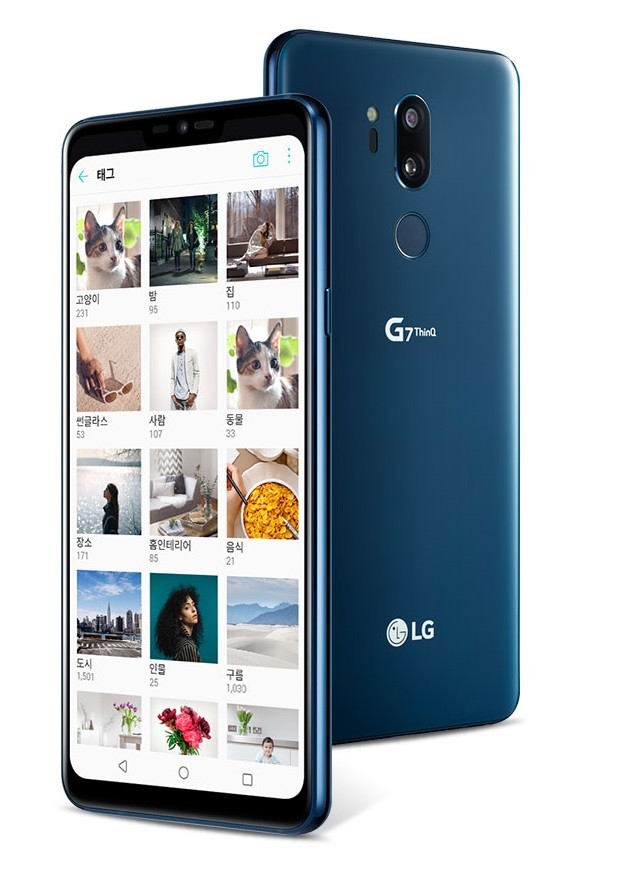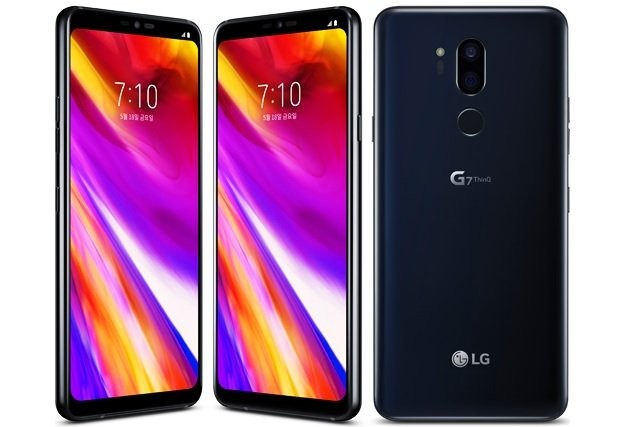Since the turn of the year, we’ve heard a number of things about the next LG flagship phone. It wasn’t a surprise that such details started emerging a few weeks before the MWC 2018 event. Over the years, LG Electronics has released a new G series device at the MWC event, but this year, the company had something different.
Despite everything, expectations were still high in LG’s camp, with many hoping that the company would pick up from where it left off with the LG G6, a phone that is one of the best in design from LG. While this could be true to some extent, the new LG G7 ThinQ, like the name itself, might not be the phone that makes you take your mind off the beautiful Galaxy S9 and S9+ or even the iPhone X that’s trying to emulate in terms of design, yet these are essentially the phones that the G7 ThinQ is here to compete with. Mark you, we haven’t even compared it to one of the most interesting smartphones around today – the Huawei P20 Pro.
Check out: 5 important things to know about Huawei P20 Pro
Like any other 2018 Android flagship phone, the LG G7 ThinQ has all the basics, be it powerful specs, a huge display screen with minimal bezels and QHD+ resolution, a dual-lens camera featuring a wide-angle lens, there’s even wireless charging and the likes of IP68 and MIL-STD 810G certifications, and unlike other vendors, you still get a 3.5mm audio jack alongside a USB-C port.
Check out: LG G7 ThinQ specs, price and availability details
LG also joins Huawei and a flurry of other Android smartphone vendors in copying iPhone X’s notch on its 6.1-inch LCD panel, something that hasn’t been taken well in our camp, however, for some reason, the company calls it a second screen. But hey, it seems this is the in-thing and if you don’t do it, you stand a chance of losing big time. With LG’s mobile division on a losing streak since 2015, they had to join the party in order to gain some financial mileage. But will the LG G7 ThinQ bring the company’s mobile division back on track?
Well, it seems unlikely, but even so, the G7 ThinQ has a number of amazing features that make it stand out in the crowd – and we have lined up five of them below.
Wide-angle photography

This is easily the best feature of any LG flagship smartphone with a dual-lens camera. Unlike many other vendors that are going for a telephoto lens to partner the main lens, LG G7 ThinQ has a 16MP wide-angle lens partnering another 16MP standard lens on the back, making it the only handset in the premium segment that supports wide-angle photography.
Although for some reason LG chose to make the wide-angle lens less wide, the 107-degree field of view it offers is still great for ultra shots without the need of slapping a third-party accessory on your phone. Even better is that the front camera also supports wide-angle photography with its 80-degree field of view, allowing for great group selfies.
Boombox mode

One area that LG seems to be consistently improving is the audio department of its flagship phones. While everyone else is thinking about ditching the 3.5mm audio jack, the company is making it even better with the help of 32-bit HiFi Quad DAC technology that amps your audio experience, but there’s something even better and quite unique.
Dubbed Boombox, LG is advertising this as a feature that will take your external audio experience to the next level. Essentially, what LG did here was opt out of the traditional dual-speaker arrangement and instead went for something different – a small speaker that appears pretty much in the same position and LG says it’s about 40% louder.

LG was the first non-Google OEM to ship a device preinstalled with Google Assistant and with the LG G7 ThinQ, the Korean tech giant is taking its relationship with Google a notch higher.
Samsung created a lot of hype with the launch of Bixby on the Galaxy S8, even going further to assign the digital assistant a dedicated button. Google also emulated this, but instead of a button, the search giant went HTC’s way and installed squeezable edges to trigger the Assistant.
With the G7 ThinQ, you get a dedicated button similar to the Galaxy S8 and S9, only that it doesn’t open Bixby, but the Google Assistant. Pretty cool from LG, but the same problem persists – it’s not remappable as many would wish.
Super Bright display

Even before the launch of the LG G7 ThinQ, the company was all over the web with teasers of how good the 6.1-inch LCD panel on the phone is. Well, it actually is! Even though some might be disappointed that LG went for an LCD panel instead of OLED, the past few years have shown us that the G series plays second fiddle to the V series, which uses OLED panels.
On the brighter side, having an LCD panel comes with its goodies. For instance, LG G7 ThinQ has a Super Bright display mode that turns the screen really super bright when outdoors, up to 1000 nits. Well, how does that sound? Impressive, I suppose!
AI camera
 With every other company trying to throw around something that has AI in it, many will agree that it kinda makes it feel like this is just a buzzword. And while this might be true in the case of LG G7 ThinQ, it’s the whole idea that makes it pretty cool and unique as well.
With every other company trying to throw around something that has AI in it, many will agree that it kinda makes it feel like this is just a buzzword. And while this might be true in the case of LG G7 ThinQ, it’s the whole idea that makes it pretty cool and unique as well.
Here’s what happens: On the camera app, you’ll notice a portrait mode and an AI CAM mode. Tap on the latter and you’ll open a whole new world powered by ThinQ. The camera will scan and recognize up to 18 different scenarios at the same time, with their names appearing at various places on the screen. Based on the scenario in question, it also suggests filters that can best suit what you want to capture.
Same sensor for the dual-lens camera
 Ever since LG started using a dual-lens camera, never has it used the same sensor in the two lenses on the back, but with the LG G7 ThinQ, things have changed. The two 16MP lenses on the back are both products of Sony and are equipped with the company’s IMX351 sensor.
Ever since LG started using a dual-lens camera, never has it used the same sensor in the two lenses on the back, but with the LG G7 ThinQ, things have changed. The two 16MP lenses on the back are both products of Sony and are equipped with the company’s IMX351 sensor.
Wrapping up
The LG G7 ThinQ is mostly a great phone that conforms to 2018 flagship standards. You get all the bells and whistles you can think of, including a few unique touches here and there, as highlighted above. However, given that the market already has the likes of Samsung Galaxy S9, Galaxy S9+, Huawei P20 Pro and even Sony Xperia XZ2, 2018 may be another year that LG’s mobile division will draw a blank, especially if the said $800 price tag is indeed a thing.
Do you think otherwise? Share your thoughts down in the comments box.






